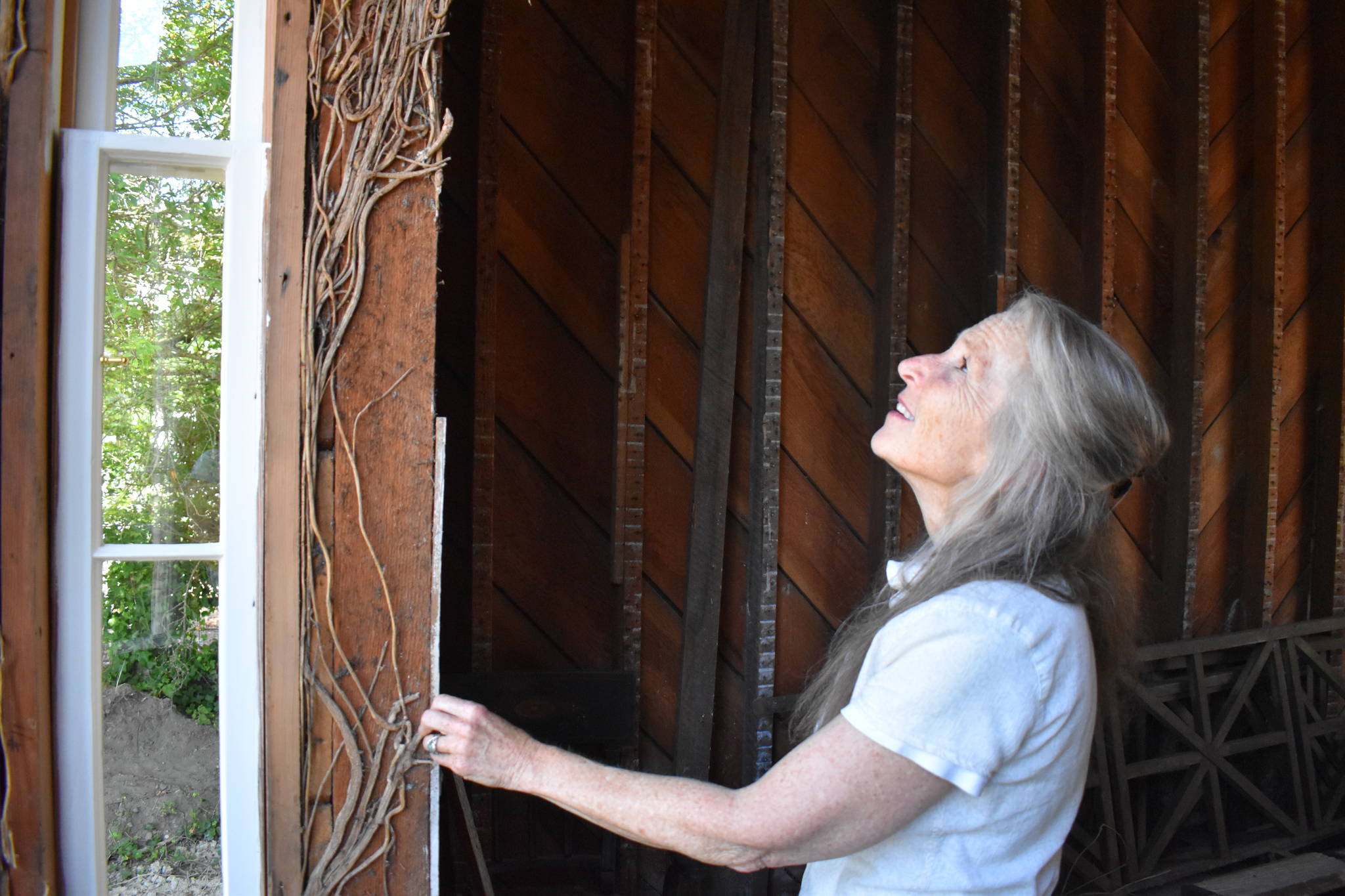A scholar’s upcoming talk will illuminate the life and times of an early Coupeville resident and “Indian fighter” whose historic home was saved from decay by a longtime community effort.
Restoration work on the 155-year-old Haller House in Coupeville continues to make progress.
The house was once home to Granville Haller, an important figure in the 19th century Pacific Northwest, and his wife, Henrietta.
During her presentation, scholar Emily Washines will share a new perspective on the 1855-58 Yakama War that began after “Haller’s Defeat.” She has researched the 1855-58 Yakama War and will be giving a talk on the beginnings of the war via Zoom at 6:30 p.m. on Thursday that is free to the public.
Washines is an enrolled Yakama Nation tribal member with Cree and Skokomish lineage.
Washines learned about Haller House and Historic Whidbey after researching Haller’s descendants, said Historic Whidbey Executive Director Lynn Hyde. The group purchased the home in 2018 and has been working to restore Haller House to how it stood on Front Street in the late 1800s.
Haller was a key figure in Coupeville’s history and was once the town’s postmaster and Island County Treasurer.
The U.S. Army sent Haller to the Pacific Northwest in the 1850s to help protect settlers from the English and local tribes, according to a biography page on Historic Whidbey’s website. In 1855, an event referred to as “Haller’s Defeat” is sometimes considered the beginning of the 1855-58 Yakama Wars in Washington state. Haller’s 102 men met a force of Yakama, Klickitat and Cayuse warriors, and he lost five men. He wrote about his experiences with local tribes and some of his writings have been used to support Yakama historical accounts.
Still, Hyde said Haller House is not meant to be a monument to Haller, a known “Indian fighter,” or to settlers of the time.
“We all have to deal with the fact that our forebearers are humans like us and it’s a mixed bag,” Hyde said.“Our stance is not to build a monument to Manifest Destiny. It’s to use the house as a platform for study.”
The group was awarded a $196,940 Ebey’s Preservation Grant in 2020 for structural stabilization and to rehab the house’s doors and windows. A new foundation was poured in January.
Upcoming projects include rebuilding the chimney and replacing the exterior siding, although there is much work to do on the aging house. Someday it will have a large Victorian-style garden modeled after the one Henrietta Haller kept, and Hyde said she has already received many offers to help restore it to its former beauty.
She hopes it will open with interpretive exhibits, mercantile and upstairs offices in 2024.
Volunteers have discovered some “quirky” things about the construction, Hyde said. There are multiple layers of wallpaper and paint stretching back to the 1870s, a stubborn vine stretches up the wall in what was once a formal parlor, and removed plaster revealed a unique chevron pattern inside the interior walls. Hyde said outfitting the inside will likely cost about a half-million dollars. She is considering an “adopt-a-room” program to offset costs.
Historic Whidbey has teamed up with the Whidbey Island Maritime Heritage Foundation, the group that owns the schooner Suva, in their effort to raise money via a specialty license plate. They need 3,500 signatures to meet their goal. If approved by the state Legislature, the two nonprofits would share the proceeds from license plate sales.
n For information about the license plate petition and to register for Washine’s talk, visit historicwhidbey.org.



